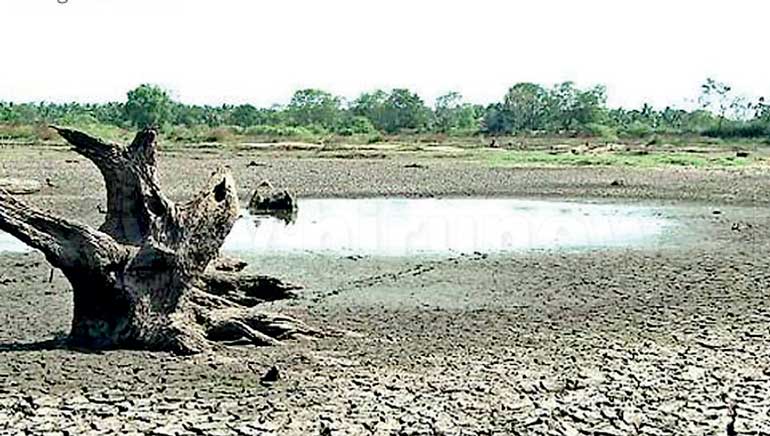Thursday Feb 19, 2026
Thursday Feb 19, 2026
Wednesday, 20 September 2017 00:00 - - {{hitsCtrl.values.hits}}

The worst drought in 40 years, affecting 1.9 million people across 17 districts, has resulted in over 300,000 families in Sri Lanka becoming food insecure and has raised indebtedness in farmer communities, the latest UN report revealed yesterday.
Since late 2016, Sri Lanka has been experiencing a lack of rainfall which has developed into what is believed to be the worst drought in 40 years, with significant impacts on the economic activity, livelihoods and lives of communities. As of 19 September, 1,927,069 people were estimated to be affected by the drought across 17 districts, according to the Disaster Management Centre (DMC).
Due to the floods in May and ongoing drought impacting the primary and secondary harvests of 2017, rice production for 2017 is expected to be the lowest paddy production in the last 10 years. The production forecast for 2017 will be sufficient for just over seven months of household consumption, the report by the UN Resident Coordinator said.
“As a result, over 300,000 households are estimated to be food insecure with many households limiting their food intake and in some cases eating just one meal a day.”
The inability of farmers to cultivate their land has also caused the availability of agricultural work to decline and consequently in many drought-affected communities, indebtedness is rising, the report warned.
“As much as 50% of households surveyed in a recent World Food Programme assessment reported that their debts have almost doubled compared to 2016 due to a lack of agriculture-based income. This is having serious consequences for the health and wellbeing of communities, with several suicides being directly attributed to the effects of the drought,” it added.
In March 2017, one-quarter of households were seriously concerned about access to drinking water with levels of water available for general household use declining. According to assessments in August by WFP and the Ministry of Disaster Management, 45% of communities have reported that their closest reservoirs are now empty, with overall water levels in reservoirs at 18% at the beginning of August compared to 47% this time last year.
Even though sporadic rains have been experienced in drought-hit areas over the past few weeks, the UN report warns these rains are unlikely to significantly alleviate the ongoing drought conditions which are predicted to continue in the coming weeks.